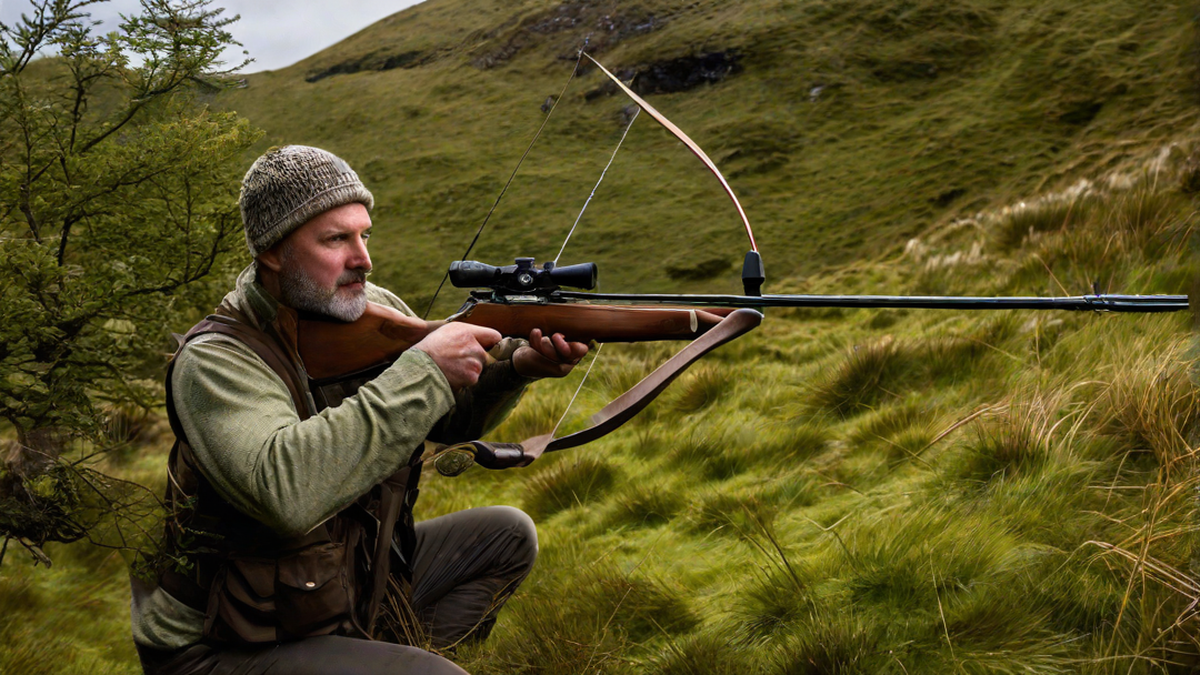Bow hunting is a popular and exciting method of hunting that has been practiced for centuries. It requires skill, precision, and patience, and many hunters find it to be a rewarding and challenging outdoor activity. However, despite its popularity in many countries around the world, bow hunting is actually illegal in Ireland. In this article, I will delve into the reasons why bow hunting is prohibited in Ireland and provide my personal insights and commentary on the matter.
First and foremost, it is important to understand that bow hunting involves the use of a bow and arrow to hunt animals. Unlike firearms, bows do not have the same range and stopping power, which means that a successful hunt requires the hunter to be in close proximity to their target. This can pose safety concerns, as a wounded animal may become aggressive and pose a threat to both the hunter and others in the vicinity.
Moreover, bow hunting requires a high level of accuracy and skill. A well-placed shot is required to ensure a clean and humane kill, minimizing the suffering of the animal. However, it can be challenging for even experienced hunters to consistently achieve this level of accuracy. Ineffective shots can lead to wounded animals that may suffer for an extended period before succumbing to their injuries. This is a significant ethical concern and goes against the principles of fair chase and sustainable hunting.
Another reason why bow hunting is illegal in Ireland is the potential for environmental damage. Ireland is known for its rich and diverse wildlife, and the government has implemented strict regulations to protect and preserve its natural resources. Bow hunting, due to its close-range nature, has a higher risk of causing unintended harm to non-target species. Misjudging distances or accidental shots may result in the injury or death of protected or endangered animals, which is unacceptable from a conservation standpoint.
Furthermore, the legality of hunting methods is often determined by cultural and historical factors. In the case of Ireland, bow hunting does not have a long-standing tradition or cultural significance. The country has historically employed other methods of hunting, such as firearms or hunting with dogs, which have established regulations and practices. Introducing a new hunting method like bow hunting would require extensive research, consultation, and consideration to ensure its compatibility with existing laws and practices.
In conclusion, bow hunting is illegal in Ireland for a variety of reasons, including safety concerns, ethical considerations, potential environmental damage, and the absence of a historical or cultural basis. While bow hunting may have its merits as a hunting method, it is important to respect and abide by the laws and regulations that govern our outdoor activities. As an outdoor enthusiast, I believe it is crucial to prioritize the well-being of both wildlife and humans, and to engage in hunting practices that are sustainable, ethical, and responsible.
Conclusion
While bow hunting may be a thrilling and challenging pursuit in other parts of the world, it is important to acknowledge and respect the laws and regulations of each country. In Ireland, the prohibition of bow hunting is rooted in safety, ethics, environmental preservation, and cultural considerations. As passionate outdoor enthusiasts, it is our responsibility to engage in hunting practices that align with these values and contribute to the preservation of our natural resources and wildlife.
